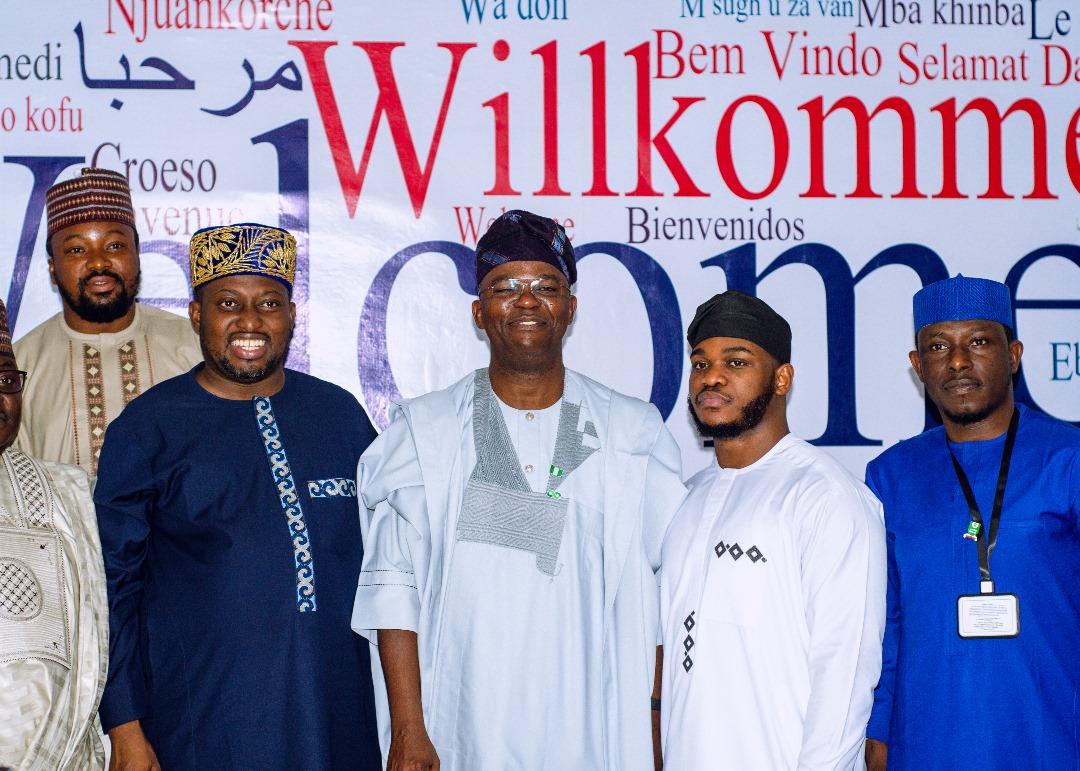The Nigerian political landscape is a vast, turbulent ocean where the currents of power sweep men of ambition toward the shores of wealth, influence, and unaccountability. Yet, like the sailors of Homer’s Odyssey, these politicians are drawn not by noble ideals but by the enchanting songs of the Sirens—those irresistible forces of corruption, greed, and moral compromise. They begin their journey as men of conviction, vowing to serve the people, but soon, the melodies of power and wealth lure them into a state of forgetfulness, where the cries of the suffering masses are drowned out by the chorus of their own indulgences.
The Sirens and Their Enchantment
In the vast expanse of Greek mythology, few creatures are as captivating and dangerous as the Sirens—mystical beings who lured sailors to their doom with their irresistible songs. Described as half-women, half-bird or fish-like entities, the Sirens dwelled on rocky islands, their voices so enchanting that any man who heard them abandoned all reason, sailing blindly toward destruction. In Homer’s Odyssey, Odysseus, forewarned by the sorceress Circe, devised a clever escape: he ordered his men to plug their ears with beeswax while he himself was tied to the mast of his ship, allowing him to hear the song without succumbing to its fatal pull. Those who lacked such foresight—such as the crew of lost ships before him—were wrecked against the jagged cliffs, their bones scattered as a grim testament to the Sirens’ power.
The allure of the Sirens was not one of force, but of seduction and deception. Their songs promised knowledge, pleasure, and fulfillment, but delivered only ruin. Their power was in their ability to manipulate desire, to make the illusion of happiness so overwhelming that reality itself became irrelevant. The closer a man got, the further he was from salvation.
In many ways, Nigerian politics mirrors this legend. It, too, is a landscape filled with Sirens—powerful forces that sing to the ambitious, promising influence, wealth, and legacy. Young politicians, activists, and reformers set sail with noble intentions, only to find themselves ensnared by the same system they sought to change. Like the lost sailors of old, they steer their ships toward destruction, betraying the very people who trusted them to lead. The Nigerian political arena is not just a place where ideals die—it is a place where they are sold, piece by piece, at the altar of power.
But who are the modern Sirens? They are the temptations of wealth, the entanglements of corrupt institutions, the flattery of sycophants, the pressure of political godfathers, and the intoxicating effects of unchecked power. Once a man heeds their song, there is almost no turning back. As Plato warns in The Republic, “Many a man who begins as a guardian of justice, in time, becomes the very thing he swore to oppose.”
With this understanding, let us now examine how Nigeria’s political Sirens operate—how the system, in connivance with the banking sector, religious institutions, and entrenched elites, continues to lure leaders into corruption, leaving the nation shipwrecked in poverty and despair.
The Political Sirens: Power, Wealth, and Impunity
In ancient mythology, the Sirens’ song was so seductive that it led men to their doom, causing them to abandon reason, duty, and even life itself. Nigerian politics operates on a similar principle: those who enter the arena with the intention of reform are soon captivated by the rewards of the system they sought to change. As Plato warned in The Republic, “The measure of a man is what he does with power.” Unfortunately, in Nigeria, power is not wielded as a tool for justice but as an instrument of personal gain.
Take, for instance, the banking sector—one of the most glaring examples of this structured corruption. The system functions not to empower the poor or develop the economy but as a vault for the political elite. Bankers and politicians exist in a symbiotic relationship, where money meant for public development is funneled through fraudulent schemes, laundered into offshore accounts, and returned in the form of political sponsorships. The common man cannot secure a loan for business expansion, but a senator can obtain billions in questionable transactions without scrutiny. As Karl Marx rightly observed, “The rich will do anything for the poor but get off their backs.”
The Dance of the Religious and Political Class
The complicity of religious leaders in this grand deception is particularly tragic. Many Nigerian clerics, both Muslim and Christian, have abandoned their prophetic role in society, opting instead to serve as chaplains to the political elite. Like the medieval Catholic Church that Martin Luther rebelled against, religious leaders now trade divine blessings for political patronage. They anoint corrupt politicians, legitimize their excesses, and offer spiritual justification for their theft. The same politicians who impoverish the masses are seen in churches and mosques, donating stolen wealth in exchange for prayers and endorsements. St. Augustine’s warning in The City of God rings true here: “Without justice, what are kingdoms but great bands of robbers?”
From Democracy to Kleptocracy: A System Rigged for the Few
While democracy is theoretically the rule of the people, in Nigeria, it has morphed into a kleptocracy where power circulates among a privileged few. Elections are a mere ritual—an elaborate performance designed to maintain the illusion of choice. The electorate, like Odysseus’ crew with wax in their ears, are rendered deaf to the real issues through media manipulation, ethnic sentiments, and religious division. As George Orwell put it in 1984, “Political language is designed to make lies sound truthful and murder respectable.”
The Sirens of Nigerian politics do not sing alone. They are accompanied by the judiciary, law enforcement agencies, and bureaucratic institutions, all of which have been captured by the ruling class. The courts grant perpetual injunctions to shield corrupt politicians from prosecution, while security agencies serve as enforcers of elite interests. Meanwhile, the legislative houses, rather than being centers of debate and governance, have become auction houses where laws are made in exchange for bribes.
The Myth of the “Good Politician” and the Siren’s Trap
One of the most insidious aspects of Nigerian politics is its ability to corrupt even those who enter with good intentions. History is littered with examples of once-radical reformers who, upon assuming office, succumb to the temptations of power. The political system is designed to neutralize threats—either through assimilation or elimination. If a leader refuses to dance to the tune of the godfathers, they are sidelined, sabotaged, or removed through orchestrated scandals. As Niccolò Machiavelli warned in The Prince, “He who becomes a prince through the favor of the people should keep them as friends; but he who becomes a prince through the favor of the nobles must beware, for they will demand from him what he cannot grant without injuring others.”
Escaping the Sirens: Can Nigeria Be Saved?
Odysseus, in his wisdom, tied himself to the mast to resist the Sirens’ song. Nigeria, too, must find ways to bind itself to principles of justice, accountability, and economic fairness. However, unlike Odysseus, who relied on brute restraint, Nigeria needs active reforms:
A truly independent judiciary that prosecutes corruption without bias.
Decentralized power structures that limit the excesses of the federal government.
An engaged citizenry that refuses to be manipulated by ethno-religious propaganda.
But perhaps the most crucial step is a moral reawakening. Until the culture of political hero-worship is dismantled and leaders are held accountable—not just in words but in real consequences—Nigeria will remain trapped in this cycle of deception and betrayal.
Final Words: The Silence After the Song
The tragedy of the Sirens was not just that they sang, but that their victims failed to resist. Nigerian politics will continue to lure men into its abyss until the people, like Odysseus, find a way to navigate past its temptations. But time is running out. The ship is already drifting toward the rocks. If nothing is done, we may wake up one day to find that the shipwreck is complete, and there is nothing left to salvage. The question remains: will Nigerians continue to listen to the song of the Sirens, or will they finally steer the ship toward safer waters?









